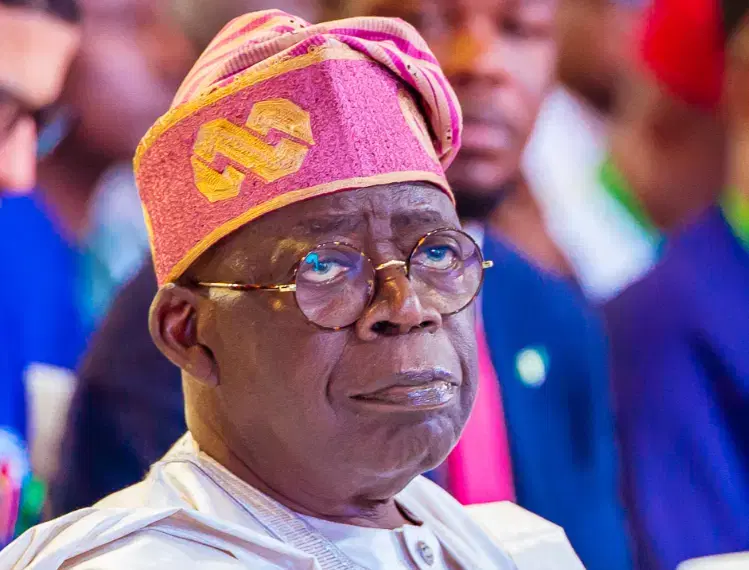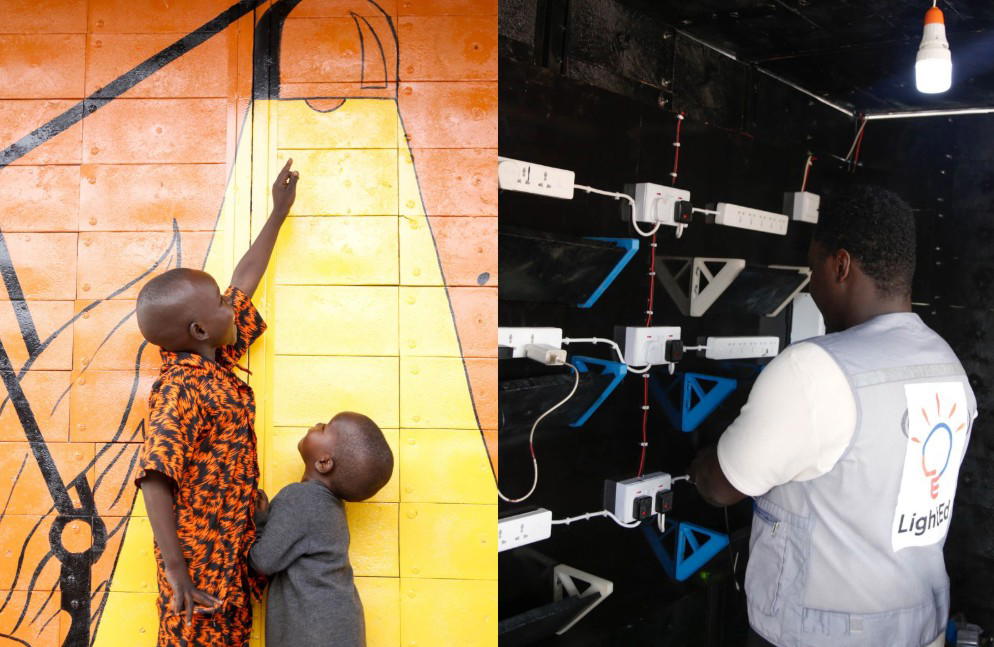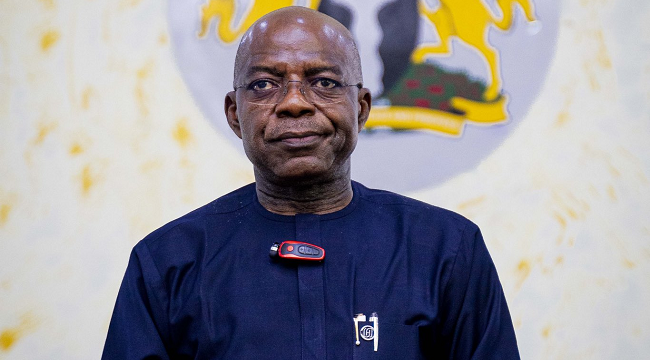
Tinubu at Midterm: Who are the people govt is satisfying?,
•Dreams of 2023 now nightmares of 2025
•Three things President must do NOW!
“(Political) Promises, like (biscuits) are made to be broken.” (slightly amended).
Jonathan Swift, 1667-1745. VANGUARD BOOK OF QUOTATIONS, p 203.
Special Report By Dr Dele Sobowale
INTRODUCTION
Anticipating this two years report on the promises and performance of the Tinubu administration, our small Consultancy undertook a study by sending out a Questionaire on the Performance of the Federal Government.
Two questions were asked; each requiring Yes or No answers:
- Is your life better today than two years ago? Yes or No
- Do you expect things to get better in two years? Yes or No The short questionnaire was administered nationwide verbally to people of different ages, ethnic groups, religions, gender and income class in all the six zones of Nigeria.
The answer to the first, not astonishing, was 3 per cent Yes and 97 per cent No. Surprisingly, the answer to the second was 1 per cent Yes and 99 per cent No. Together they reflect a nation in which the people are not only miserable, but, they have lost hope in their political leaders everywhere.
Politicians and promises are two Siamese twins which can never be separated; and which almost invariably bring distress to the citizenry. Oftentimes, outlandish pronouncements are deliberately made, which even they know cannot possibly be true, in order to gather the votes for victory at the next election.
Almost invariably, they soon discover that what was promised during elections cannot be delivered on reaching office. To cover their tracks they quickly assemble the brightest and best media and public relations practitioners – they can lay their hands on – and give them their marching orders to create a propaganda machinery. This is therefore an attempt to assess the Federal Government, FG, as objectively as possible. As we know, “You cannot adopt politics as a profession and be honest.” (Louis M Howe, 1871-1936, VBQ p 192).
President Bola Tinubu finishes his second year in office in a few days. Everybody has had sufficient time to undertake a performance appraisal of the government he leads; and to determine whether or not he has done well. Examining some of the promises made in the RENEWED HOPE document and measuring them against actual performance is, perhaps, the best place to start.
PROMISES MADE IN 2023
“Great men and nations keep their promises.” US President George Bush, Snr.
Candidate Bola Tinubu, like others before him, was full of promises in the RENEWED HOPE document on which his campaign was based. A few specific pledges made are recalled below for the purpose of this performance appraisal.
- Gross Domestic Product
- Housing
- Employment
- Power Supply
- Crude Oil Production
- Security
- Poverty
There are other aspects of our lives worthy of attention. But, the space and time available will not allow us to examine all of them in detail. Generally, the performance has been extremely disappointing in the first two years.
Tinubu came into office with a reputation for innovation and progress as a former Governor of Lagos State. But, as he finishes his half tenure in office, the acclaimed achievements in the past have become a distant memory. Right now all the indices seem to be pointing to work in process, at best; or outright failure at worst. These are the reasons for serious concern.
GROSS DOMESTIC PRODUCT
“He who speaks without modesty will find it difficult to make his words good”.
Confucius, 511-479 BC.
Perhaps not being in office was responsible for the gap between promise and performance regarding Gross Domestic Product, GDP. On the other hand, the RENEWED HOPE document might represent another instance of politicians promising more than they can deliver. The chart below would suggest deliberate and successful attempt to deceive Nigerians.
To begin with, the Nigerian economy has never grown at 10 per cent since records were kept. The best performance occurred during Gowon’s era when the GDP grew at 7 per cent for two years – 1973 and 1974. The second best was during Yar’Adua’s administration when the growth rates were approximately 6.5 per cent.
Why candidate Tinubu promised 10 per cent growth rate in 2023 to 2027 is a mystery only the President can explain. It was bad enough to promise it for one year; to extrapolate that level of growth for four years was over-optimistic at best; and coldly deceptive at worst. The real performance proves how far off the mark the government has been – rendering the document worthless henceforth.
In 2024, the actual GDP growth was 3.6 per cent instead of 10 per cent. The most optimistic forecast for 2025 is 3.0 per cent. Real GDP was US$199.72bn instead of US$586.7bn in 2024; it is projected to be US$188.27bn instead of US$645.3bn by year end.
GDP PROJECTIONS AND ACTUAL
GROWTH REAL GDP
PROJECTION ACTUAL PROJECTION ACTUAL
2024 10% 3.6% US$ 586.7bn US$ 199.72bn
2025 10% 3.0% US$ 645.3bn US$ 188.27bn
Since the facts speak for themselves, no further comments are necessary.
HOUSING
Whoever wrote the section on housing in the RENEWED HOPE document must receive the national award for drivel. Starting with 4.0 units of housing in 2023, Tinubu projected doubling the housing stock in 2024 and adding 4 units every year until 2028 when it would peak at 24 – or six times what we started with. Apart from the absence of metrics – is it 4 thousands, millions or billions? – the promise defies the verdict of history. No nation doubles its housing stock in one year or multiplies it by six in five years.
As lawyers say, “You can’t build something on nothing”. Tinubu started with nothing on Housing; and the nation has achieved next to nothing. In actual fact, more housing units might have been demolished by the Federal Capital Territory Minister and state governments than they collectively built.
UNEMPLOYMENT
“Lies, damned lies and statistics” was the how Mark Twain, 1835-1910 regarded Statistics which were in their infancy in his days. It might remain unchanged.
When the truth became too embarrassing on rising unemployment, the National Bureau of Statistics, NBS, came to the rescue. NBS redefined employment; and declared only 4.3 per cent unemployment in Nigeria. Unknown to the statisticians at NBS, classical economics regards 4 per cent as full employment in an economy. Nigeria therefore must be the only nation in the world enjoying full employment. This was one damned lie with a very short expiry date.
Again, the promise is as clear as pure water. Tinubu’s government would create millions of jobs such that by 2025, more Nigerians would be employed than in 2023.
Nothing is more dangerous than a convincing illusion. Because millions of Nigerians were unemployed, it was easy for the pledge to be swallowed unexamined. Reality intruded rudely on May 29, 2023, when President Tinubu announced that “fuel subsidy is gone” and “exchange rates deregulated”. Within two months more Nigerians had lost their jobs than at any point in Nigerian history.
Today, despite the absurd position of the politicised National Bureau of Statistics, NBS, which declared one hour of work a week as full employment, the number of unemployed Nigerians is estimated at close to 47 million.
POWER SUPPLY
“Every economy runs on power supply.” That is an axiom of economics. And, it is not surprising that every nation with larger GDP than Nigeria’s also generates and distributes far more power. The current wishful thinking about becoming a $1 trillion economy flies in the face of the global truth. Two nations, Switzerland and Saudi hovering around $1 trillion generate and distribute 73.6TWh and 423TWh of electricity respectively, Nigeria generates 11TWh and distributes under 5TWh two years into the tenure of the Tinubu government.
The promoters of the illusion of $1 trillion economy by 2030 are clones of the false vendors of VISION 2020 until the year came and went and Nigeria has lost ground in GDP ranking. Now we are farther away from top 20 than in 1993.
Power generation has improved; but supply has been stagnant. GDP growth in 2023, 2024 and prospectively 2025 reflect the lack of significant progress on power supply. The people have lost; Discos and governments have gained with over 200% tariff increase in two years.
CRUDE OIL PRODUCTION
“Our history shows that the Oil and Gas sector is not the answer to our economic problems…” RENEWED HOPE document p 33.
That was the truth. Still Tinubu established several goals.
” Increase crude oil production to 2.6mbpd by 2027 and 4mbpd by 2030.
” Increase indigenous share of crude oil production to 1mbpd by 2027.
” Achieve stability of petroleum product supply by fully deregulating the downstream sector and ensuring that local refinery capacity will meet domestic consumption needs.
Like most of the promises made by candidate Tinubu, the goals were riddled with illusions. The promise to increase crude production ignored the global flight away from fossil fuels and the frantic search for alternative energy sources. By 2023, it was clear that aggregate demand for crude oil products would decline in the medium term and collapse in the long term.
Furthermore, a glance at our record of crude production in the last ten years would have cautioned a serious presidential candidate.
Nigeria has averaged slightly less than 1.5mbpd for more than ten years. Production capacity would not result in 2mbpd, not to talk of 2.6mbpd – without huge investments. Meanwhile, the International Oil Companies, IOCs, were divesting in response to global realities.
Nigeria remains a member of OPEC; and the nation is bound by its quota restrictions – which were not likely to reach 2mbpd.
Who then would invest to bring production to 2.6mbpd in 2027? Who would buy the crude if produced? The facts are here to destroy the most stubborn illusions regarding crude oil production.
“80m barrels of Nigerian crude unsold in global glut.”
BUSINESSDAY, APRIL 25, 2025.
Is it the nation which is having difficulties selling its crude, with production below 1.5mbpd which will produce 2.6mbpd? Or 4mbpd?
The day dreams of 2023 have become the nightmares of 2025 on oil.
SECURITY
“The fundamental responsibility of government is to protect the lives and property of its citizens. We will mobilise the totality of our national security, military and law enforcement assets to protect all Nigerians from danger and from fear of danger..” RENEWED HOPE DOCUMENT p 5.
If only wishes and good intentions are enough to guarantee excellent governance, Nigerians should be sleeping with their two eyes closed now. Unfortunately, good intentions are never enough. Nigeria is now more insecure than in 2023. Two unprecedented events render that as the obvious conclusion. In early May, Northern Governors Forum convened a meeting to discuss what the elected leaders of Arewa could do to check the intractable insecurity in the region – which has clearly gone out of hand.
Even the rubber-stamp National Assembly, NASS, discovered its spine. They plan a Security Summit; which the Minister of Defence first opposed and later capitulated. Irrespective of the outcome of the Governors’ meeting and the NASS Summit, the message is very clear.
Governors and the NASS no longer believe that the Commander-In-Chief, C-I-C, of the Armed Forces is leading the country the right way on security. It was a subtle vote of no confidence. The lack of trust in the President might become more open if the situation does not improve.
The signs are ominous. In 2023, the nation was reeling under resurgent attacks of Boko Haram, herdsmen, kidnappers, ethnic warlords and other violent groups. Today, two new violent groups have entered the fray; and Boko Haram increasingly attacks military formations in Borno State – inflicting heavy casualties on the armed forces themselves. “Who will guard the guards themselves?” (Seneca). That question was never asked before.
The recent dispute between NASS members from the Northeast and the Army regarding how well armed Boko Haram and the Nigerian army is symptomatic of how confidence in government’s ability to secure the nation has declined in two years.
WHOSE GOVERNMENT IS THIS?
“Governments are best classified by considering who are the “somebodies” they are endeavouring to satisfy.” Alfred North Whitehead, 1861-1947.
The RENEWED HOPE document promised serially to work for the masses of Nigeria. Despite the fact that Tinubu was elected by the smallest number and percentage of votes since 1999, virtually all those votes were cast by the middle and low income classes, as well as the poor and destitute – based on pledges made to them. Two years into his tenure the most important question is: who are the people the government has been satisfying?
Since journalism is the first rough draft of history, the facts confronting us are unassailable. Two years of Tinubunomics has impoverished the middle and low income classes, as well as those living in multi-dimensional poverty more than in 2023. The economic decline of the suffering masses has been summarised as follows: “By 1985, 25 years after independence, Nigeria’s GDP per capita declined to $868. By 2010, it grew to $2,120, but by 2024, it plummeted to $824, the lowest since independence.
Essentially, Nigerians were much better off at independence than they are today”. Dr Akinwunmi Adesina, President African Development Bank.
Nigerians alive in 1960 did not need Akinwunmi to tell them that the last two years have brought the worst economic distress to the vast majority of people including pensioners – who worked for 30 or more years and are now wallowing in abject poverty – than at any time in our history.
Meanwhile, who were the beneficiaries of the government’s economic policies? Top on the list are bankers, insurance companies, Oil and Gas companies, Discos, GSM operators, Customs Agents and Foreign Exchange dealers. Less than one per cent of people constitute the beneficiaries of a reform agenda that was ill-conceived and is being badly executed. Coherence is lacking; monetary and fiscal policies work at cross-purposes and the co-ordinating Ministry operates on the Peter Principle – which might explain how we got into this socio-economic quagmire which was not promised in RENEWED HOPE.
YESTERDAY’S MEN FOR TODAY’S PROBLEMS
“Employees are promoted based on their success in previous jobs until they reach a level at which they are no longer competent, as skills in one job do not necessarily translate to another.” Peter Principle summarised by Wikipedia.
Every government, like any team, is only as good as the individuals comprising the team and the team manager – plus the motivation for playing. Nigeria’s present predicaments had their origins in governments before the current one. Basically, the most important positions – Finance, Petroleum, Power, Transportation, Aviation, Security, Education and Central Bank – have been handed to people for political/ethnic reasons – not competence.
Start with finance. Buhari’s two Ministers of Finance could not have passed a final year examination in any Economics department – given their utterances. When Tinubu tapped his former Commissioner for Finance in Lagos State in and the Commissioner for Economic Planning, when he was Governor, 1999-2007, he failed to realise two important things.
First, Lagos is not Nigeria, and vice versa. An excellent Commissioner in Lagos might lack the competence to be a Federal Minister. Second, the world and Nigeria’s economic environment has been altered radically since 2023. Crypto currencies were unheard of then; and dollar dominance was not in contention. A competent Minister of Finance or CBN Governor must possess up to date hands-on experience regarding where we are in relation to global dynamics. The brightest and the best in Lagos in 2007 might constitute a distinct liability in office today.
For reasons too complex to explain now, the government’s fiscal and monetary policies are delivering the greatest pain to the largest numbers of Nigerians. Certainly, this was not the promise made to the people. Furthermore, government seems to be bereft of ideas regarding the way forward.
So, permit me to offer three simple suggestions.
WAY FORWARD
One, throw away the RENEWED HOPE document. It was at best fiction raised to state level of state policy. No professional economist would promise 10 per cent annual GDP growth from the low base of 3.6 per cent. Only politicians do that sort of thing.
Two, reduce the number of Ministers; downsize the federal government, including the Presidency. At less than $60 per barrel, Nigeria cannot afford 48 Ministers and 300 Special Advisers to the President.
Third, get a new team. Learn from football. A losing team is disbanded and fresh legs brought in. Your current team have done their best. But, their best is not good enough. “Nigeria beats war-ridden Sudan to emerge capital of malnourished children in Africa.” Peoples Gazette, May 7, 2025.
How bad must things get before government admits failure?
Follow me on Facebook @ J Israel Biola.
The post Tinubu at Midterm: Who are the people govt is satisfying? appeared first on Vanguard News.
,
Politicians and promises are two Siamese twins which can never be separated; and which almost invariably bring distress to the citizenry. Oftentimes, outlandish pronouncements are deliberately made, which even they know cannot possibly be true, in order to gather the votes for victory at the next election.
The post Tinubu at Midterm: Who are the people govt is satisfying? appeared first on Vanguard News.
, , Idowu Bankole, {authorlink},, , Vanguard News, May 24, 2025, 2:46 am












